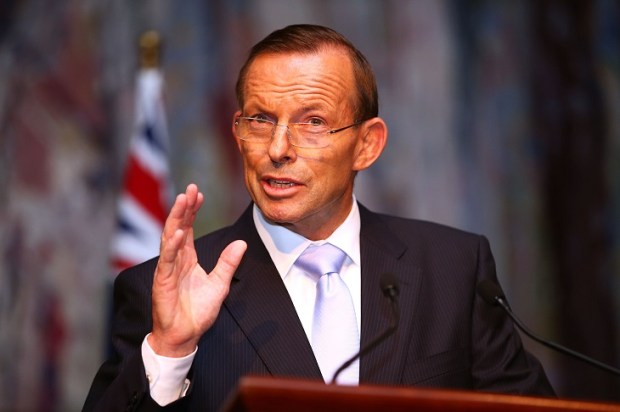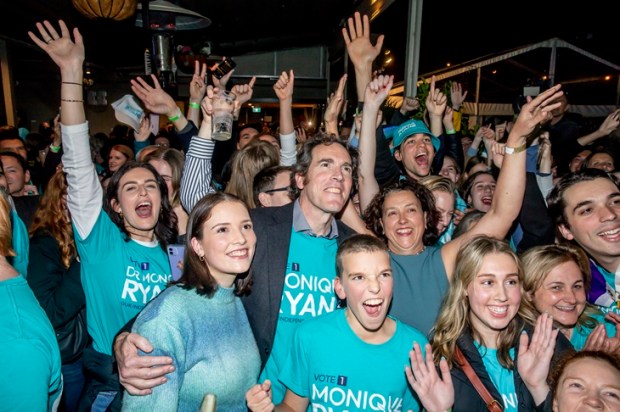Writing about Australia’s management of the Covid pandemic, Garrick Professor of Law, James Allan, commented that:
‘…in a decade or less we will look back on this as the worst public policy failure in this country’s history … it will take a few years for the ruinous outcomes … to become clear.’
In this context, Allan also opined that the damage to the economy is not caused by the Covid virus itself ‘but by the political response to it’ that ‘shows the economic effects of ignoring freedom-concerns’. Now that Australia (perhaps reluctantly) has returned to its pre-Covid routine, it is appropriate and timely to assess Allan’s confident assertion that the management of the Covid pandemic is the worst policy failure of the decade.
At the very start of the pandemic, the government, to the surprise of fiscal conservatives, started to spend money that the country could not afford and did (and does) not have. At present, Australia’s debt exceeds more than a trillion dollars. Specifically, Gregory O’Brien reports that since ‘the beginning of the pandemic, Australian government gross debt has increased from $534.4 billion in March 2019 to $894.9 billion as of 28 October 2022. The October 2022–23 Budget forecasts further increases in gross debt to $1.159 trillion (43.1 per cent of GDP) by the end of the 2025–26 financial year’.
The days are gone when the ruling and opposition parties excitedly bickered over two or three billion dollars deficit (or surplus) when the Budget was presented to Parliament! Despite generous handouts, the government’s approach decimated the business sector and destroyed jobs. In this context, it is apposite to refer to the now famous gaffe of the previous Prime Minister, Scott Morrison, who reportedly said that free speech ‘doesn’t create one job, doesn’t open one business, doesn’t give anyone one extra hour’. This gaffe is ironic considering that the government’s management of Australia’s financial resources during the pandemic destroyed more jobs than any other Australian government.
The government erroneously embraced modelling which predicted that 150,000 Australians would die, while all the time instilling fear in people. This fear was nourished by the media that incessantly trotted out the alleged dangers associated with the virus and salaciously reported the deaths that resulted from infections. Alternative ways to treat the disease, which could have alleviated the worst symptoms of viral infections, were never really considered nor tolerated by the political and medical apologists. The government relied on health bureaucrats with wide powers to recommend the adoption of emergency measures, which were authoritarian and profoundly illiberal. It led to repeated lockdowns, border closures, mask mandates, vaccine mandates, social distancing directions, and various restrictions. These emergency measures devastated the Australian economy, while at the same time the non-productive public sector was thriving.
It would be too tedious to list here even the most abhorrent examples of the atrocious breaches of the basic rights of people. A few selected examples will suffice to describe the horrendous abuse that happened during the pandemic. A pregnant woman was arrested in front of her children because she had posted a message on Facebook, referring to an upcoming demonstration against Covid restrictions. The Victorian Police Commissioner called it an example of ‘serious criminal activity’! In Victoria, demonstrations against vaccine mandates were ruthlessly repressed by police, while the same state turned a blind eye when a Black Lives Matter (BLM) protest took place. In this context, Greg Sheridan of The Australian commented that ‘all the normal mechanisms of democratic deliberation and accountability have been diminished or erased in Victoria’ and that ‘Democracy has collapsed in Victoria. So has good government’.
Thousands of Australians were stranded overseas and prevented from returning to their own country. This constituted an egregious violation of the right of people to return to their country of nationality or residence – a most basic rule of international law. Article 12(4) of the International Covenant on Civil and Political Right (‘CCPR’) stipulates that no one shall be ‘arbitrarily deprived of the right to enter his own country’. For this reason, the UN Human Rights Committee, itself known for its illiberal leanings, in May 2021, raised serious concerns about the government’s decision to ban its own citizens from returning home.
Vaccine mandates were enthusiastically supported by the political elites of both major parties and the medical establishment. The mandates were part of a fragmented array of emergency measures imposed upon people and enforced in an overbearing manner. The unvaccinated were subject to discriminatory treatment and banned from most public venues, including court houses, making it difficult to mount a legal challenge to vaccine mandates.
The decline in civility and the toxicity generated by the response to the Covid pandemic thus provide ample evidence of the failure of Australian authorities to protect the basic rights of people.
The policy failures of the federal, state, and territory governments demonstrate the validity of President Ronald Reagan’s comment that, ‘Government is not the solution to our problem; government is the problem.’ Indeed, a review of the management of the Covid pandemic reveals that Australia has become a nation of slave-like people with elected politicians acting more as masters, without providing the servant leadership that a free people expect of their leaders.
As the long-term adverse consequences of the Covid fiasco are enduring, Professor Allan’s opinion, that the management of the pandemic is the worst policy failure of the decade, is credible, for at least two reasons.
First, there is the enviable – but probably impossible – task to restore the trust that people place in government. This is illustrated by the fact that, until a few years ago, people could always confidently leave Australia and expect to return to their country at any time. Now, even though the international border re-opened on Monday, February 21, 2022, people will no longer be certain that what happened during the worst days of Covid cannot happen again in the future. It can be expected that the level of trust, as it existed in pre-pandemic times, will never be restored to the same level.
Second, the government’s management of the pandemic has created a two-tier state with some people having more rights than others. Indeed, the health directions facilitated the development of a growing two-tier society where some people are more privileged than others, involving the distribution of burdens and benefits simply on the ground of people’s vaccine status.
For example, despite overwhelming evidence showing that the harms of vaccinating individuals, particularly young adults, outweighs any benefits conferred, medical schools throughout Australia still force their incoming students to be fully vaccinated. Some universities even go so far as to ignore valid vaccine exemptions provided on health grounds. These exemptions are recognised by Australia’s senior regulatory bodies but ignored by some of the schools training the next cohort of Australia’s doctors. Also, the ‘no jab, no transplant’ policy, still adhered to by many hospitals, threatens the life of patients, as evidenced by the well-publicised case of Vicki Derderian, who was refused a heart transplant by a hospital in Melbourne because she was (and remains) unvaccinated. This refusal ignores that myocarditis (inflammation of the heart) and pericarditis (inflammation of the heart’s membrane) are recognised side effects of Covid vaccinations. Meanwhile, the Therapeutic Goods Administration (TGA), since the vaccine rollout to July 9, 2023, has received 139,157 adverse event reports and has identified 14 deaths caused by Covid vaccinations.
The emergence of a two-tier society proves that Australia has irretrievably changed because fundamental rights are ever more dependent on the government’s generosity and could quickly be taken away at the slightest provocation, ostensibly to protect the health of Australians. The legacy of Covid is defacing Australia, while potentially, if not actually, transforming it into an illiberal State.
In a resort on the Sunshine Coast, I recently saw a poster with the caption, ‘How Beautiful it is to do nothing … and then rest Afterwards.’ The poster obviously served as an encouragement for people to visit the Coast, enjoy themselves and do nothing, and then rest afterwards. But during the pandemic, the authorities, when designing their response to the pandemic certainly did something, but it was the wrong thing. Doing the wrong things is infinitely worse than doing nothing, especially if the authorities then seek to absolve themselves of all responsibility.
Professor Allan’s opinion has been vindicated.
Gabriël A. Moens AM is an emeritus professor of law at the University of Queensland. He served as Garrick professor of law at the University of Queensland, and as pro vice-chancellor, and dean at Murdoch University.

























